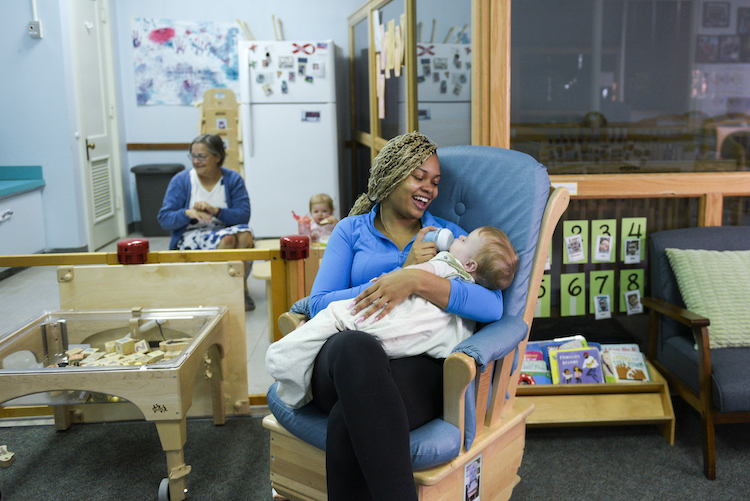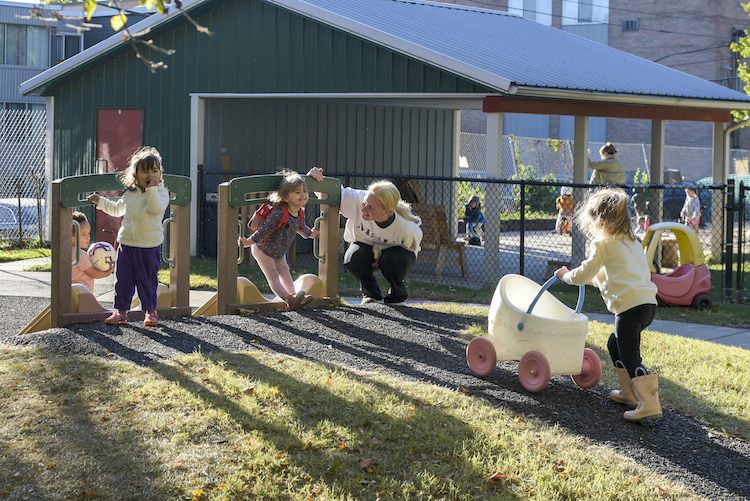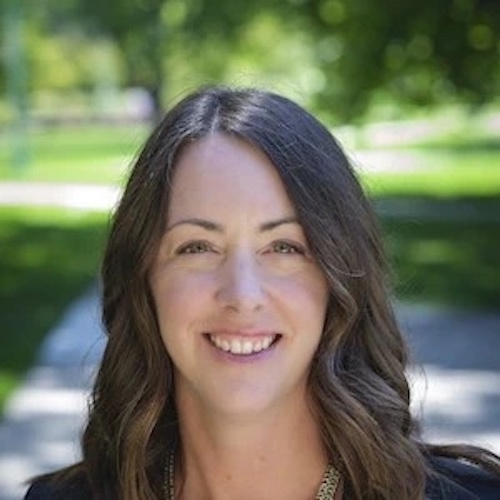Childcare shortages across Michigan have made it difficult to fill around 9,000 vacancies for early childhood educators. This shortage has affected the state’s ability to provide care to children, a critical service that’s not only important for early childhood development and school readiness but necessary for a strong Michigan workforce and economy.
This shortage of caregivers — released by a state report in 2024 — applies to both childcare centers and licensed in-home care facilities. Much of the shortage is for children under 3, with rural communities facing the most limited options.
Because these staff shortages impact children and families, Michigan State University’s Department of Human Development and Family Studies is working to counter the deficit by providing graduates skills and experience through its child development major: Birth to Kindergarten and Special Education, or BK.
“As the demand for qualified professionals has intensified, our students are rising to the challenge, gaining expertise and hands-on experience at our Child Development Laboratories, and securing in-demand, rewarding positions after graduation,” said Andrea Wittenborn, professor and chair of the department.
Program success
The degree program, housed in the College of Social Science, prepares students interested in early childhood education by offering teacher certification and licensure for teaching in infant/toddler, preschool and kindergarten classrooms.

For example, 100% of MSU BK students passed the state teaching licensure exam during the last review period, between 2021 and 2024.
The program also provides a way for undergraduates to continue into graduate study through the Shared Undergraduate to Master’s Degree Program, or four plus one program.
“We’re so excited about this four plus one program because we find it to be a very cutting-edge way to train students and get them on this accelerated path toward their graduate studies,” said Amanda Guinot Talbot, assistant professor and undergraduate program director. “We are excited to see the growth of this, helping our students to get a leg up on their competition and move further into their studies.”
Meeting job demand
Michigan’s population is expected to increase by over 200,000 through 2034, suggesting a growing need for early childhood educators. While the period between 2013 and 2023 saw a period of around 5% employment decrease, employment for childcare workers is expected to grow by 2% as well as 4.3% for preschool teachers as of the end of 2025’s second quarter.

The department is graduating qualified educators who are looking to take on these open positions, bringing with them strong skills and passion for the work.
“I hope to make a positive impact on children in the future in my career in early childhood education by providing the first foundational steps of development in all sorts of aspects,” said Ava Fredericks, a undergraduate senior.
The department hopes to attract more students to the program through recruitment and awareness efforts to help address the statewide employment vacancies.
“You can tell the people in this program really want to make sure that the pre-service teachers that are coming in have the best experience that they can and leave here with having as much knowledge as they can,” said Kate Logee, a master’s student. “This program cares so much about making sure that they’re putting teachers into classrooms because that’s where the most learning can happen, and you can only learn so much in a lecture hall.”
Interested individuals who want to learn more can visit the MSU Department of Human Development and Family Studies website.
